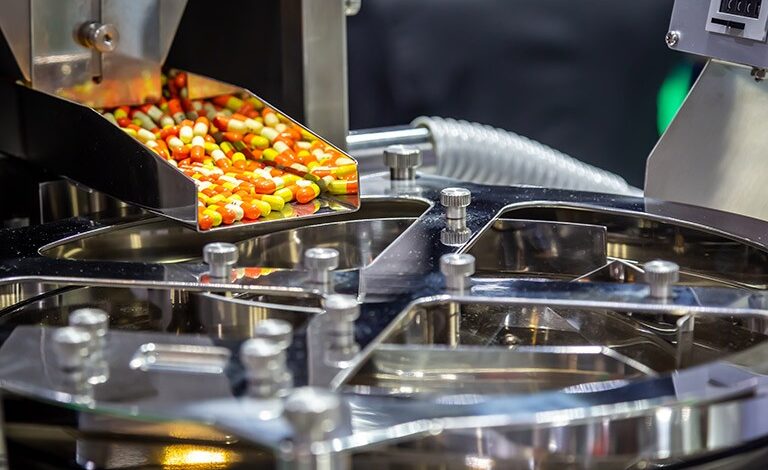The Complete Guide to Pharmaceutical Capsule Filling Machines

In the modern pharmaceutical industry, precision, consistency, and efficiency are essential for large-scale medication production. Pharmaceutical capsule filling machines play a vital role in this process by automating the encapsulation of powders, granules, or liquids into hard or soft capsules.
These machines are indispensable for pharmaceutical manufacturers, nutraceutical companies, and laboratories that require high-volume, accurate capsule production.
In this guide, we’ll cover everything you need to know about capsule filling machines, including types, functions, advantages, components, and maintenance tips.
What Is a Capsule Filling Machine?
A capsule filling machine is specialized equipment used to fill empty capsules—typically made of gelatin or a vegetarian alternative—with pharmaceutical or nutritional substances. These machines streamline what was once a manual process, ensuring uniformity in dosage and improving productivity.
Capsule fillers are used in a wide range of industries, including:
- Pharmaceuticals: For prescription medications and over-the-counter drugs
- Nutraceuticals: For vitamins, minerals, and herbal supplements
- Veterinary medicine: For animal treatments in capsule form
- Clinical research: For trial-sized formulations in research labs
Types of Capsule Filling Machines
There are three primary types of capsule filling machines:
1. Manual Capsule Fillers
Manual capsule filling machines are best suited for small batches or laboratory use. These require an operator to manually place the capsules, fill them with material, and close them.
- Advantages: Low cost, easy to use, ideal for small-scale operations
- Limitations: Time-consuming, labor-intensive, lower output
2. Semi-Automatic Capsule Fillers
Semi-automatic machines bridge the gap between manual and fully automatic systems. The operator assists in loading capsules and filling materials, while the machine handles separation, filling, and locking.
- Advantages: Higher output than manual, less labor-intensive, consistent filling
- Limitations: Still requires human intervention, medium production rate
3. Fully Automatic Capsule Fillers
Automatic capsule filling machines are designed for large-scale production. These machines can fill, separate, lock, and eject capsules continuously with minimal human input.
- Advantages: High-speed production, precise dosing, minimal labor
- Limitations: Higher upfront cost, more complex setup and maintenance
Key Components and Functions
A typical capsule filling machine consists of several important parts, each serving a specific function in the encapsulation process:
1. Capsule Hopper
Holds empty capsules before they are fed into the machine for processing.
2. Capsule Orienting Mechanism
Aligns each capsule so the body and cap can be separated correctly.
3. Separation Station
Uses vacuum or mechanical means to separate the capsule cap from the body.
4. Dosing System
Measures the exact quantity of powder, granules, or liquid and fills it into the capsule body. Different dosing systems include:
- Tamping pins (for powders)
- Auger fillers (for fine materials)
- Liquid filling systems (for softgels)
5. Capsule Closing System
Rejoins the capsule cap and body, securely sealing the filled capsule.
6. Ejection Station
Finished capsules are expelled from the machine and collected for further processing or packaging.
Advantages of Capsule Filling Machines
1. High Efficiency and Productivity
Automatic machines can fill thousands of capsules per hour, significantly reducing production time and labor costs.
2. Consistent Dosage
Capsule fillers ensure each capsule receives an exact dose, reducing the risk of over- or under-medication.
3. Clean and Hygienic Process
Encapsulation is performed in a controlled, enclosed environment that minimizes contamination risk.
4. Versatility
Machines can handle different capsule sizes (e.g., 000 to 5), various filling materials (powders, pellets, tablets, liquids), and both gelatin and HPMC capsules.
5. Scalable Production
As your business grows, capsule filling machines can scale from small lab use to full industrial production with additional features and automation.
Applications in the Pharmaceutical and Supplement Industry
- Prescription drugs: Capsules allow for precise dosing and timed release mechanisms.
- Nutritional supplements: Vitamins and herbal products are commonly delivered in capsule form for easy consumption.
- Clinical trials: Research laboratories use capsule machines to create experimental formulations for testing.
- Custom compounding: Pharmacies can produce unique blends tailored to individual patient needs.
Choosing the Right Capsule Filling Machine
When selecting a capsule filling machine for your business or laboratory, consider the following:
1. Production Capacity
Determine how many capsules per hour you need to produce. Manual machines are best for under 1,000 capsules per day, while automatic systems can fill over 100,000 per hour.
2. Capsule Sizes and Types
Choose a machine compatible with the capsule sizes and materials (gelatin or vegetarian) you intend to use.
3. Type of Filling Material
Not all machines can handle liquids or sticky powders. Select one that suits your specific formulation.
4. Budget and ROI
Balance the initial investment against expected production gains and labor cost savings.
5. Regulatory Compliance
Ensure the machine meets GMP (Good Manufacturing Practices) and FDA guidelines if producing pharmaceuticals.
Maintenance and Cleaning Tips
Regular maintenance extends the life of your capsule filling machine and ensures safe operation.
- Daily Cleaning: Remove residue and powder build-up with a soft brush or vacuum.
- Sanitization: Clean all parts that contact product with approved sanitizing solutions.
- Lubrication: Apply food-grade lubricants to moving parts as recommended.
- Calibration: Check dosing accuracy regularly and recalibrate as needed.
- Scheduled Service: Follow the manufacturer’s service intervals for replacing wear parts and inspections.
Conclusion
Pharmaceutical capsule filling machines are essential tools for the production of safe, reliable, and high-quality medications and supplements. With a range of options from manual to fully automated systems, businesses of all sizes can find a solution that fits their production needs and budget.
By understanding the types, components, advantages, and maintenance requirements of capsule filling machines, you can streamline your production process, ensure consistent dosing, and meet industry compliance standards.
As demand for capsules continues to rise, investing in the right capsule filling technology can provide long-term value and operational efficiency.




